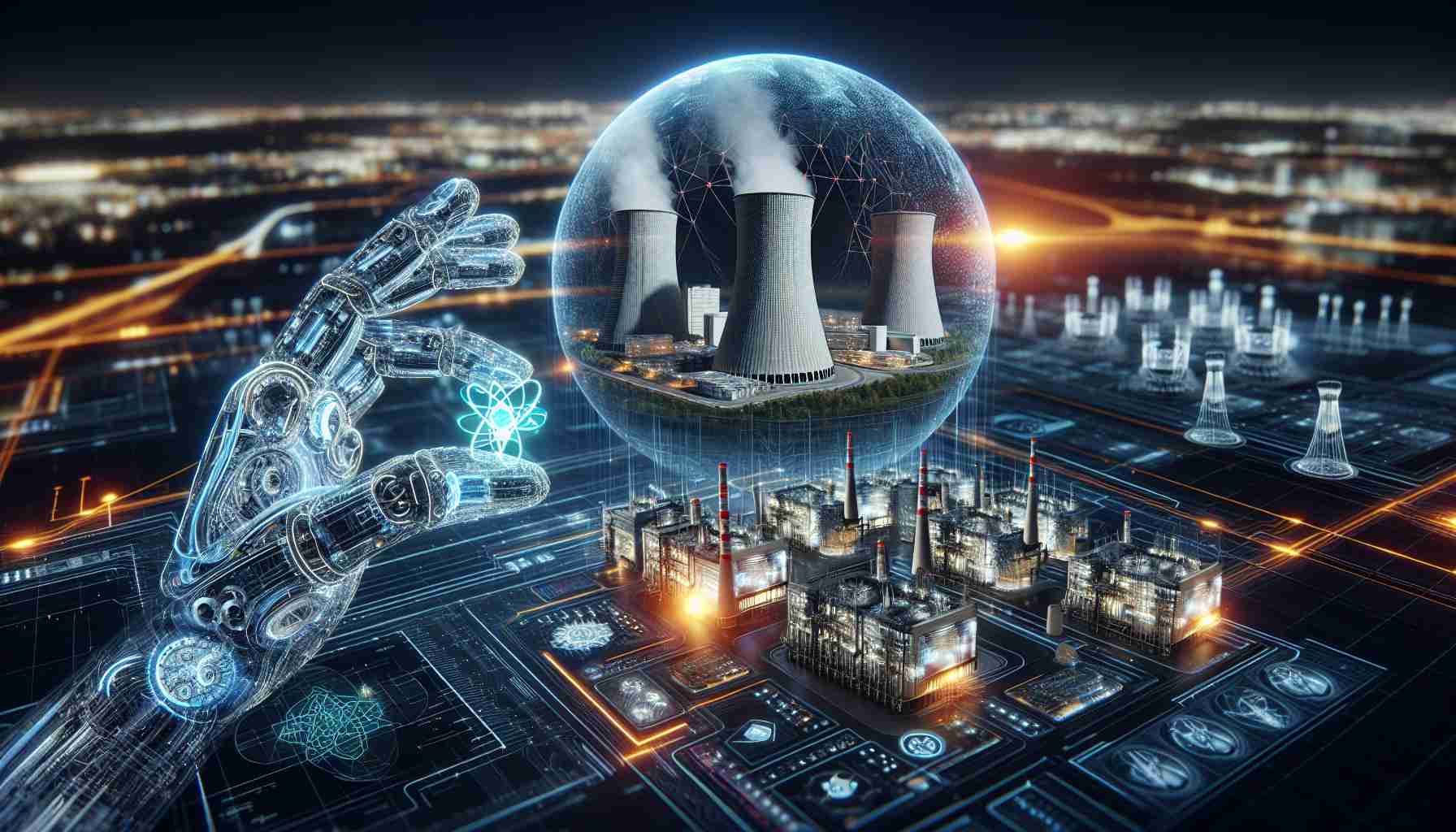The continent faces a staggering rise in energy demands, pushing it towards a potential nuclear future.
As Africa’s population continues to surge—projected to reach 3.2 billion by 2066—the pressing demand for energy is set to escalate rapidly. Currently, the average energy consumption in Africa stands at a mere 3 barrels of oil equivalent per person, a far cry from the 8.62 barrels needed for robust development.
With a population growth that eclipses both India and China, Africa’s energy requirements are becoming critical. As early as 2061, Africa’s energy demand is forecasted to outstrip India’s, largely driven by economic growth and increased productivity. Modelling from the International Futures platform reveals that despite a modest shift away from fossil fuels, oil, gas, and coal will still dominate Africa’s energy mix in 2050, with oil at 17%, gas at 40%, and coal at 7%.
Despite having the potential for renewable energy, which currently constitutes only about 2% of the continent’s energy production, challenges remain. Wind and solar could address household electricity needs, but the inconsistency of these sources complicates their ability to meet core energy demands.
In this context, nuclear energy emerges as a serious contender. Although only a small fraction of Africa’s energy production currently comes from nuclear, with only one operational plant in South Africa, recent developments in Egypt signal a potential shift. As the continent grapples with its energy future, investing in nuclear power could be crucial for sustainable growth.
The Nuclear Pivot: Considerations for Africa’s Energy Future
The pressing shift towards nuclear energy in Africa reflects deeper societal and economic transformations. As the continent’s population burgeons, its energy demands are set to redefine social structures and modes of economic productivity. Increased energy access could spur job creation, enhance educational opportunities, and elevate living standards, thus bolstering the middle class. However, the uneven distribution of energy resources—primarily between urban and rural areas—may exacerbate existing inequalities if not managed judiciously.
On a global scale, Africa’s transition toward nuclear energy could ripple through the international energy markets. If successful, it may position the continent as a pivotal player in the energy sector, potentially attracting foreign investment and partnerships. Countries could benefit from advanced technologies and infrastructure development, leading to a diversified energy portfolio that reduces reliance on traditional fossil fuels.
However, the environmental implications remain a double-edged sword. While nuclear power has a lower carbon footprint than fossil fuels, concerns about waste management, potential accidents, and long-term sustainability cannot be overlooked. Developing robust regulatory frameworks and safety practices will be essential as Africa moves toward this complex energy avenue.
Looking ahead, the path to a nuclear-powered future is fraught with challenges, yet the stakes are high. Failing to address energy demands sustainably could risk stagnating development or igniting social unrest. Thus, as Africa contemplates its energy destiny, a cohesive strategy that integrates nuclear power with renewable resources appears vital for equitable and robust growth in an increasingly energy-hungry world.
Africa’s Energy Future: The Case for Nuclear Power Amidst Exploding Demand
Understanding Africa’s Energy Crisis and the Role of Nuclear Power
As Africa’s population is projected to soaring to 3.2 billion by 2066, the continent’s energy needs are set for a dramatic increase. The current average energy consumption stands at merely 3 barrels of oil equivalent per individual, significantly lower than the estimated 8.62 barrels required for sustainable development. With such a discrepancy, Africa faces a major challenge in fulfilling its energy demands.
Energy Demand Projections and Economic Growth
Africa’s burgeoning population growth—outpacing that of both India and China—indicates that the continent’s energy requirements will become increasingly critical. Projections suggest that by 2061, Africa’s energy demand will surpass that of India. This surge is primarily fueled by economic growth and rising productivity across various sectors.
Current Energy Landscape
Despite renewable energy options, only about 2% of Africa’s energy is derived from renewable sources today. Although wind and solar energy could potentially provide significant electricity for households, their intermittent nature creates challenges for meeting core and consistent energy demands. The International Futures platform projects that by 2050, the energy mix will still heavily rely on fossil fuels, with oil contributing 17%, gas 40%, and coal 7%. This heavy reliance highlights the need for diversification within Africa’s energy sources.
The Case for Nuclear Energy
In light of these challenges, nuclear energy is emerging as a viable solution. Currently, Africa’s nuclear energy contribution is minimal, with only one operational power plant in South Africa. However, developments in Egypt reflect a growing interest in expanding nuclear capacity on the continent.
Advantages of Nuclear Power in Africa
– Reliability: Unlike solar or wind, nuclear power provides a steady and reliable energy supply that can meet growing demands.
– Lower Carbon Emissions: As countries aim to reduce carbon footprints, nuclear energy presents a cleaner alternative to fossil fuels.
– Increased Energy Security: Diversifying energy sources can protect countries from fluctuations in oil and gas prices.
Challenges and Limitations
– Infrastructure Needs: Establishing nuclear power facilities requires significant investment in infrastructure and technology.
– Public Perception and Safety Concerns: Nuclear crashes elsewhere in the world have led to skepticism among the population regarding safety.
– Regulatory Framework: Strong regulatory measures and governance are essential to manage nuclear energy responsibly.
Future Trends and Market Analysis
The future of energy in Africa suggests a mixed scenario. While fossil fuels will continue to dominate the landscape, the shift towards diversifying energy sources, including nuclear power, is gaining momentum. Countries are likely to engage in partnerships for technology transfer and the development of nuclear plants. Additionally, initiatives to enhance regional cooperation in energy production can further bolster the continent’s energy security.
Conclusion
Africa stands at a crossroads in its energy journey. As the demand for energy escalates sharply with population growth and economic advancements, incorporating nuclear power could play a pivotal role in ensuring sustainable development and meeting the energy needs of this rapidly evolving continent. Embracing such technologies may ultimately pave the way for Africa to secure a stable and prosperous future.
For further insights on energy trends in Africa, visit Africa Energy Portal.
The source of the article is from the blog procarsrl.com.ar



